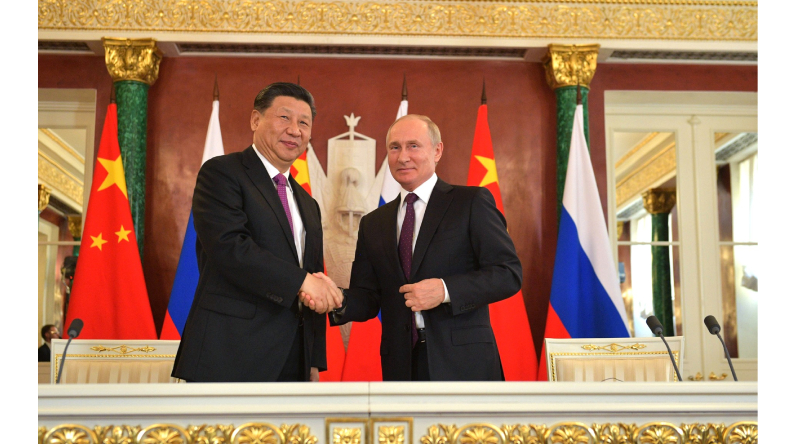Russia and Ukraine have differing opinions on what should happen to Crimea. Russia’s annexation of Ukraine’s Crimea in 2014 drew widespread international condemnation. Many countries, including the United States and the European Union, have imposed economic sanctions on Russia as a result of the annexation of Crimea, and the United Nations General Assembly has adopted a resolution affirming Ukraine’s territorial integrity and sovereignty over the peninsula.
Since then, Russia has maintained its dominance over the area, despite accusations of human rights abuses and the persecution of the Crimean Tatar minority from a number of nations and international groups. However, Ukraine has not recognised the annexation because it views Crimea as part of its territory. Russia and Ukraine, as well as Russia and the international community, continue to be at odds over this unresolved issue. It is important to note, however, that China has not taken a firm stance on the matter and has instead sought to preserve cordial relations with both Russia and Ukraine.
There are a number of factors that have prevented China from taking a firm stance on Russia and Ukraine’s dispute over Crimea’s status:
For diplomatic reasons, China may choose to take a neutral stance on the issue rather than antagonise either Russia or Ukraine, with whom it has significant economic and political ties. China is well-known for its “non-interference” policy in the internal affairs of other countries.
China has close economic and trade ties with both Russia and Ukraine, and it may be hesitant to take a firm stance on the issue for strategic reasons.
In terms of international politics, China may be hesitant to take a firm stance on the issue because of its permanent seat on the United Nations Security Council.
While China’s hesitance to take a firm stance on the status of Crimea may help it keep the peace with Russia and Ukraine and prevent it from being isolated by the rest of the international community, it could also pose security risks for countries on the border. The following are examples of possible dangers:
The situation could get worse if Russia and Ukraine interpret China’s non-interference policy as tacit approval of Russia’s annexation of Crimea, which would only heighten tensions between the two countries and encourage Russia to take even more aggressive measures in the region.
China’s ability to achieve its foreign policy goals could be hampered by a loss of trust if it is seen as not standing up for its own principles, especially when it comes to international law and the sovereignty of other countries.
China’s economy and trade relationships could suffer from economic sanctions if other countries view China’s non-interference policy as tacit approval of Russia’s annexation of Crimea.
Reputational harm: China risks being seen as less of a responsible player on the global stage if it is not seen as defending international law and principles.
Conflicts on the military front could threaten China’s security and stability if tensions between Russia and Ukraine continue to rise and Beijing is eventually forced to take a side.
Russia and Ukraine have been wrangling over Crimea’s status for years, and the dispute shows no signs of abating. Some potential answers to this problem are:
Russia and Ukraine, backed by the international community, could hold diplomatic talks to work out a compromise that preserves both countries’ independence and territorial integrity.
A third party international mediator, such as the United Nations, could be brought in to help facilitate negotiations and find a peaceful resolution to the conflict.
Also Read : Restricting entry to the United Kingdom from foreign students would be a act of economic self harm
International economic sanctions could be used to encourage Russia to leave Crimea and respect Ukraine’s sovereignty if they are imposed on Russia.
If diplomatic efforts fail to resolve the issue, military intervention could be considered, but this would likely lead to a much more serious and prolonged conflict.
China’s participation in finding a solution to this problem could look like this:
China could show support for international law by respecting the sovereignty and territorial integrity of Ukraine.
China could play a mediating role in resolving the conflict by bringing Russia and Ukraine to the negotiating table.
Taking a stand: China could take a stand on the issue to demonstrate that it is a responsible stakeholder in the international community and that it respects the sovereignty and territorial integrity of other countries.
It’s important to note that the status of Crimea is an international issue that will require a concerted and multilateral effort to resolve, and that China could play a crucial role in this effort by being a responsible stakeholder and taking a stance on the issue. China is trying to keep up good relations with both Russia and Ukraine and avoid taking sides in this issue because it follows a policy of “One country, two systems,” which means it would not like to interfere in the internal affairs of other countries. As a result, China could be seen as not standing up for its own principles, especially when it comes to international law and the sovereignty of other countries, and as having no direct influence over the situation in Crimea.
